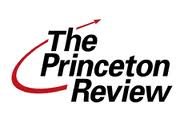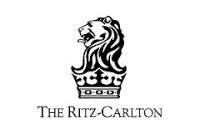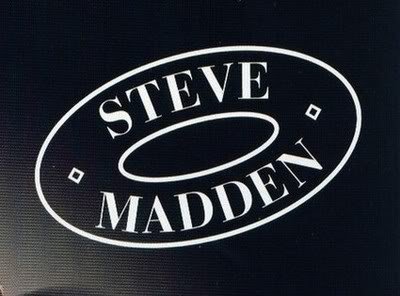
Contrary to popular belief, the realm of retail presents unique challenges when it comes to managing time. However, certain proven strategies can help streamline your schedule and enhance productivity. In this article, we’ll explore these strategies, fine-tuned to fit the unique requirements of retail professionals.
Audit Your Time:
You can’t improve what you don’t measure. Dedicate a week to track your time. Write down each task you do, no matter how small, and the time it takes to complete it.
This practice gives you an overview of where your time is being spent, enabling you to identify inefficiencies and time-wasters.
Boost Your Pace:
High-achievers often work at a fast pace, which allows them to get more done.
This doesn’t mean rushing or causing stress, but being decisive and purposeful with actions. It’s about maintaining a sense of urgency to complete tasks efficiently.
Set Clear Goals:
Goals provide direction. They should be specific, measurable, achievable, relevant, and time-bound (SMART).
Having clear goals means you know exactly what you’re aiming for and can better structure your time to achieve these goals.
Prioritize Tasks:
Understanding your priorities means recognizing the tasks that have the most impact on your success.
This helps in differentiating between ‘urgent’ and ‘important’ tasks and ensures that you’re spending your time in a way that directly contributes to your goals.
Utilize To-Do Lists:
A to-do list is a simple yet powerful time management tool. It serves as a visual reminder of what needs to be done and can help you stay focused and organized.
Prioritize tasks in your list based on their importance and deadlines.
Treat Tasks as Appointments:
Just as you wouldn’t leave a meeting with a client open-ended, your tasks shouldn’t be either.
Setting a start and end time for each task keeps you on track, discourages procrastination, and prevents tasks from expanding to fill available time.
Optimize Time Allocation:
The principle of Parkinson’s Law states that work expands to fill the time available for its completion.
Therefore, by reducing the time you allocate to a task, you force yourself to focus and work more efficiently.
Stay Organized:
An organized workspace leads to an organized mind. Regularly decluttering both your physical environment and your schedule can reduce stress and improve focus.
It also means you’re not wasting time looking for lost items or information.
Delegate:
Delegation is a crucial skill for any manager. It not only lightens your workload but also provides development opportunities for your team.
When delegating, ensure the person understands the task, has the necessary resources, and agrees on a deadline.
Learn to Say “No”:
It’s crucial to protect your time. If a task doesn’t align with your priorities or moves you further from your goals, consider declining.
Saying ‘no’ can be difficult, but it’s necessary for effective time management.
Stay Flexible:
Despite careful planning, unexpected events will occur. When they do, adapt your schedule as needed.
However, avoid becoming so flexible that you lose sight of your priorities.
Schedule Downtime:
Rest and relaxation are essential for maintaining productivity and preventing burnout.
This downtime can be spent pursuing a hobby, spending time with loved ones, or simply doing nothing at all.
Don’t Be Overwhelmed:
Break large tasks into smaller, manageable chunks. This approach makes daunting tasks less intimidating and can help keep you motivated as you make progress.
Take Care of Yourself:
Your physical and mental health directly impacts your productivity. Prioritize sleep, maintain a balanced diet, and engage in regular exercise.
Scheduling regular check-ups and taking breaks when needed is also crucial.
Embrace the Dawn at Your Store!
Whether it’s the store you personally own or multiple ones under your management, clocking in early sets the tone for a productive day.
Adopt the mindset of the early bird who reaps the rewards!
As an early riser, you harness the energy of the morning to tick off tasks on your to-do list, leaving a vast part of your day free for more accomplishments.
Plus, by being an early bird, you become a role model for others in your team.
Regarding health matters, we might not be medical experts equipped with in-depth knowledge about the human body’s nutritional needs, but we can’t stress enough the importance of self-care.
To perform optimally and make the most out of your waking hours, you need to prioritize your health.
A balanced diet, regular physical activity, scheduled health check-ups, and a general attitude of self-compassion are all critical components to staying at the top of your game.
As we wrap up, let’s highlight some crucial principles for time management in retail:
When deciding how to allocate your valuable time, always focus on tasks that align with YOUR Top Success Factors. Remember, YOU are in charge of YOUR results.
Any excuse suggesting you were busy assisting others won’t hold water – nor should it.
Beware of requests from higher-ups wanting you to prioritize THEIR Top Success Factors.
While it’s important to be supportive and collaborative, be mindful of what tasks you accept and how you rank them in your schedule.
Avoid statements like “I’m going to do…” and instead, manage your time so efficiently that you can confidently say “I am doing…”.
This shift signifies the difference between actual action and mere talk.
Too many individuals have the best intentions but fall short in execution, spending more time discussing future actions than actually doing them.
The best use of your time is to cultivate successful leaders by
a) eliminating barriers to their success,
b) generously and consistently sharing information with them, and
c) frequently engaging them in a candid exchange of ideas.
This approach not only boosts their personal growth but also contributes significantly to the overall success of the store.

























































































